
The Business of Fashion
Agenda-setting intelligence, analysis and advice for the global fashion community.

Agenda-setting intelligence, analysis and advice for the global fashion community.
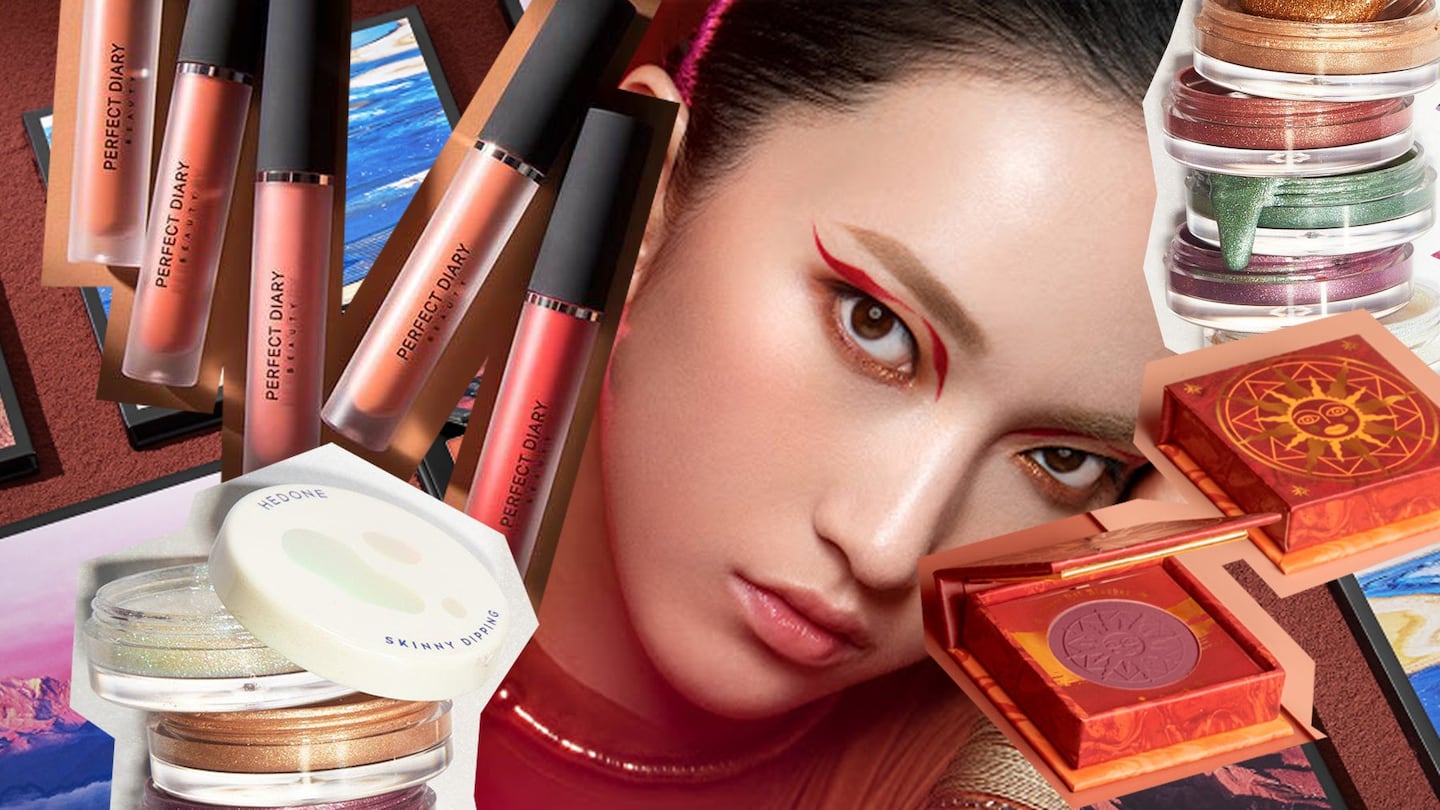
SHANGHAI, China — Xiao Wanzi looks like a typical woman in her 20s, albeit one with exceptionally good skin. In her private WeChat groups (she operates hundreds of them, with a few hundred "friends" in each), she shares tips about skincare and beauty, answers questions from other young people in the group and recommends products.
Though fans love Xiao Wanzi for her authenticity, she’s not exactly the average Chinese girl next door. In fact, Xiao Wanzi isn’t actually a real person at all. Or, rather, she is but her real name isn’t Xiao Wanzi and everything she says online is produced by a team of content specialists. Not quite a real-life KOL and not quite a virtual influencer, the face of Xiao Wanzi belongs to an employee (real name undisclosed) at Guangzhou-based Chinese beauty brand, Perfect Diary.
“Xiao Wanzi started because a lot of consumers would ask how to use products,” Perfect Diary’s Marketing Vice President, Christy Sun, explains. “Maybe they bought an eye shadow palette online but the pictures online were not effective at showing them how to use it.”
Though Tmall has proven a fantastic partner for selling ("almost all" of Perfect Diary sales come via the platform according to a company spokesperson who declined to give exact figures for this story), it is not ideal for consultation. “It’s not a good platform to use to talk to consumers about how to use a product,” Sun adds.
ADVERTISEMENT
Into this breach stepped Perfect Diary with its quasi-virtual influencer Xiao Wanzi. Later joined by comrades Min Min and Su Su, these fictional characters were designed to act as a virtual friend or jiejie (big sister) to young Chinese consumers looking for beauty guidance.
But rather than limiting itself to messaging from official brand accounts, Perfect Diary has used these personas to infiltrate the private account world of WeChat, engaging with young people in a more intimate way. Xiao Wanzi and her associates then encourage their “friends” to buy more products from Perfect Diary-operated mini-programs — all within the WeChat eco-system.
It is a clever cross-selling strategy that shows just how innovative "C-Beauty" brands have become.
The Rise of C-Beauty Unicorns
The ability to utilise China’s unique social media infrastructure to acquire and more closely interact with consumers is one of the reasons Perfect Diary has become a billion-dollar beauty phenomenon. It is one of several local giants that few people outside of China have even heard of.
Perfect Diary was founded in 2017. In September 2019, the company closed its latest round of funding, led by Hillhouse Capital Group, a private equity firm based in Beijing, Singapore and Hong Kong that valued the company at over $1 billion. When asked, the company declined to offer a precise figure, but did say that the brand has been designated a “unicorn start-up enterprise” by Guangzhou’s Government, confirming a valuation north of $1 billion.
C-Beauty brands such as these may look like they have come from nowhere in a short span of time — but looks can be deceiving.
"I believe Perfect Diary can be China's Glossier," said Elle China's Beauty Director, Lettie Tsang. "This brand is already very successful and will continue expanding their product categories in the future. They are heading [in] the right direction with a great price [to] quality ratio."
Other C-Beauty brands are in fundraising mode. Hedone, another digital-first cosmetics brand known for quality products, quirky marketing and an affordable price tag, popular with Chinese women aged 18 to 30, closed its Series B investment in December 2019.
ADVERTISEMENT
Hedone, founded by Rachel Qu and Jason Zhou in 2018 and based in Shanghai, declined to disclose the amount raised, or the company’s current valuation, but with eye shadow palettes and lip glazes that are among the top selling beauty products on both Tmall and Xiaohongshu, annual revenue is estimated to be over $100 million by one prominent analyst (this estimate was not refuted in BoF’s fact-checking with company sources). This would place it in the same league with Glossier in terms of annual revenue.
C-Beauty brands such as these may look like they have come from nowhere in a short span of time — but looks can be deceiving.
“These guys aren’t in it for the short term, it looks like they have exploded in a short time, but behind the explosion there has been a lot of planning [and] a lot of investment,” says Lin Lin, chief executive of China International Beauty Expo (CIBE), a trade show with events in Guangzhou, Shanghai, Beijing and Shenzhen.
“The products are much better quality… the content is higher quality and they have good teams to support them,” she added, predicting that further waves of C-Beauty brands will use a similar template to succeed in the coming years.
Calibrated to the Chinese Market
Brands such as Perfect Diary and Hedone, along with other C-Beauty players Pechoin, Chando (owned by domestic cosmetics giant Jala Group), Judydoll, Girlcult and KOL Benny Dong's brand Croxx on the colour cosmetics side, as well as Home Facial Pro, Winona and Uniskin in the skincare arena, have all been the beneficiaries of multiple trends coalescing.
According to business intelligence firm Gartner L2, by December 2018, 72 percent of Chinese cosmetics brands were using keywords in their Tmall product listings related to being “made in China,” up from less than 50 percent the year before.
Not only have Chinese consumers — in particular the Post-90s generation — become more open to purchasing home-grown brands, they have also started embracing ideas about beauty considered non-traditional in China.
ADVERTISEMENT
“The rise of social media and mobile beauty apps like Beautycam have changed the way we dress and the way we live. Young people are obsessed with photo-driven makeup [and] colour is the easiest path to self-expression,” Tsang explains.
Unlike Glossier, which famously limits its product line to a bare minimum 30 products, C-Beauty brands, especially those with a colour cosmetics focus, launch new products all the time, with some companies boasting four to six product drops per month, constantly feeding the need for new content on social media.
The rise of social media and mobile beauty apps like Beautycam have changed the way we dress and the way we live.
These brands and their consumers have grown up in a digital environment marked by the rise of wanghong (internet celebrity influencer) culture and the sprouting of numerous social networks that naturally integrate content and commerce — WeChat, Xiaohongshu, Douyin, among them — as well as one of the most developed e-commerce landscapes in the world.
Like Glossier and other direct-to-consumer (DTC) upstarts in the West, a rising generation of C-Beauty brands make the bulk of its sales online, mainly via Tmall and JD.com. This kind of DTC strategy utilising major e-commerce platforms is necessary in China, where platforms reign supreme and own-brand websites barely get a look-in.
According to Tmall, Perfect Diary was the overall top selling brand in the colour cosmetics category in 2019, another first for a C-Beauty brand. Previously, Tmall's top selling beauty brand lists were dominated by international names such as L'Oréal, Estée Lauder and Maybelline. Though Perfect Diary declined to release sales figures, media reports have estimated they are on track to sell around 3 billion yuan (approximately $430 million) worth of product annually via Alibaba’s e-commerce platforms.
Even with the coronavirus outbreak dampening consumer appetite for non-essential purchases (both online and off) in the first few months of this year, Tmall expects the C-Beauty category to continue to grow strongly in 2020.
“The online browsing rate of these brands has not slowed on our platform, and the core consumer groups remain stable and active,” a Tmall spokesperson told BoF.
Brave (or Reckless) Influencer Strategies
China's insurgent digital-first beauty brands fortify a Tmall-centred e-commerce and live-streaming sales strategy with strong content and widespread use of KOLs (big and small, real and virtual) across multiple platforms. They have long been fast to adopt new social media players using integrated interactivity and CRM features in a way many international brands still haven't.
The most successful C-Beauty brands including Perfect Diary, Hedone, Pechoin and Chando work with hundreds of KOLs at a time, both big names, as well as micro-influencers with followings less than 5,000.
“Most international brands are more conservative in cooperating with key opinion influencers; domestic brands seem more open and brave,” Tsang says.
According to Christy Sun, Perfect Diary’s KOL strategy is split between major players, like “lipstick king” Li Jiaqi, who has long worked with the brand and just last week launched a co-branded pet-themed eye shadow palette with Perfect Diary (inspired by Li’s dog, who often appears in his live-streams), which sold out in minutes.
The most successful C-Beauty brands... work with hundreds of KOLs at a time.
“There is a network effect, so if key KOLs use our product, it inspires other KOLs, especially smaller KOLs to also make content about us, so this is free media we earn,” Sun explains.
“We also select smaller KOLs because they can create great content that fits our brand. So, it’s more about the feeling [than the followers].”
Especially on education-focused platforms, such as Xiaohongshu, C-Beauty brands, including Perfect Diary, Hedone and Judydoll also take advantage of the sharing function to amplify user-generated content to their own official accounts and the millions of people who follow them (Perfect Diary currently boasts 20 million fans across its social media accounts).
International beauty brands, by comparison, almost exclusively use Xiaohongshu to release their own content and that of trusted KOLs and ambassadors, a top-down, rather than two-way approach to engage with young Chinese consumers who are increasingly demanding more reciprocity.
Ambitious Expansion Plans
Perfect Diary opened its first physical retail store in the southern metropolis of Shenzhen in January 2019, and by the end of the year, had built a network of 40 stores in 20 Chinese cities. Compare this with Glossier’s brick-and-mortar expansion, which has two permanent locations and an ongoing pop-up strategy designed to test the market in other locations.
“Consumers [in China were] actually moving back to brick-and-mortar for the social aspect [prior to the coronavirus putting a major dent in retail traffic]. On weekends, young women like to socialise together, often in malls, so our foot traffic was really good,” Sun explains.
“Also, we discovered the conversion rate for our brand was increasing because people were able to try the products before buying and some people were generating content on social media about the stores, so that gave more consumers the confidence to buy it.”
Before the spread of the coronavirus majorly disrupted China’s retail environment, Sun told BoF the brand was planning to open 200 stores this year alone, eventually growing the physical network to 600 stores.
In 2019, the major growth trend for fast moving consumer goods, including colour cosmetics, came from outside of China's major cities. Perfect Diary's store network plan targets cities from tier one all the way down to five, the so-called xiachen, or "low" market.
"The xiachen market is the focus because those are fast shoppers, turnover rate is so quick," CIBE's Lin Lin says. "They are more open to Chinese colour cosmetics than first tier consumers who are so jaded; they are so selective and their look won't be as experimental as the lower-tier city consumers."
Though Perfect Diary says its expansion timeline will be extended due to the current crisis, its overall brick-and-mortar ambitions remain unchanged.
The question that beauty industry insiders are now asking themselves is “who will be China’s answer to Glossier?” but given current industry dynamics and future growth potential in China, the question might soon be the reverse: “Which foreign brands can take on Chinese giants like Perfect Diary?”
Additional reporting from Aijing Wang
时尚与美容
FASHION & BEAUTY
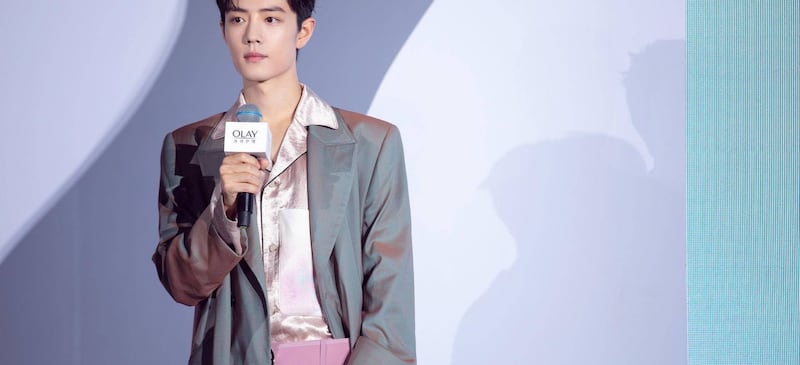
Xiao Zhan speaking at an Olay event | Source: Courtesy
Xiao Zhan Boycott Implicates Beauty Brands
From March 1, Chinese censors have further tightened content restrictions on social media. Caught up in the crackdown was fan fiction and art platform Archive of Our Own (also known as Ao3) which was suddenly blocked in China. Rabid fan fiction aficionados pointed the finger at fans of actor Xiao Zhan, who were upset at a work uploaded on the site that represented their idol as a sex worker with gender dysphoria in a fan fiction series with queer themes and had reported Ao3 to authorities. Calls for a boycott of brands for which Xiao Zhan is a spokesperson, including Olay and Estée Lauder, ensued. (Shumin Lai for BoF China)
Study Links International Fashion Giants to Forced Uighur Labour
A new study released by the Australian Strategic Policy Institute shows 80,000 Uighurs, a persecuted ethnic minority from China's Xinjiang region, have been funnelled to work in factories elsewhere in China under conditions "that strongly suggest forced labour." International fashion brands Nike, Adidas, Uniqlo and Tommy Hilfiger are among 83 global brands linked to the factories. (Forbes)
科技与创新
TECH & INNOVATION
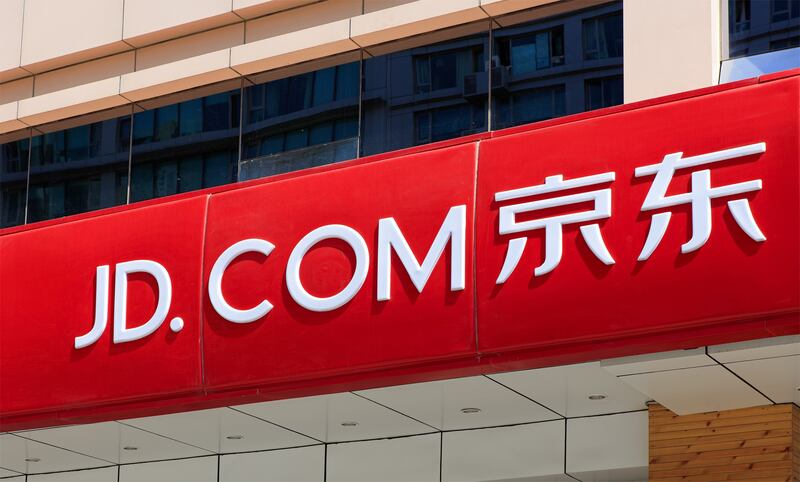
JD.com | Source: Shutterstock
JD.Com Sees Boost to E-Commerce During Health Crisis
JD.com forecast a 10 percent rise in revenue for the coronavirus-hit first quarter, benefiting from partnerships with supermarkets for delivering fresh produce and groceries to shoppers choosing to stay indoors due to fears of infection. Though a lower rise than expected, the sentiment contrasts with e-commerce leader Alibaba, which last month warned e-commerce revenue would fall as a result of disrupted economic activity this quarter. (Caixin)
Beauty Hashtags Trending on Xiaohongshu
Xiaohongshu is China's go-to platform for beauty KOLs and brands looking to develop communities, fresh from a bumpy 2019 in which it was removed from app stores for three months, Xiaohongshu seems to be gathering steam in 2020. English translations of popular hashtags so far this year in the beauty category (one of the platform's most popular) include "First make-up of the year", "Today's make-up", "My skincare routine" and "My bargains." (Park Lu)
消费与零售
CONSUMER & RETAIL
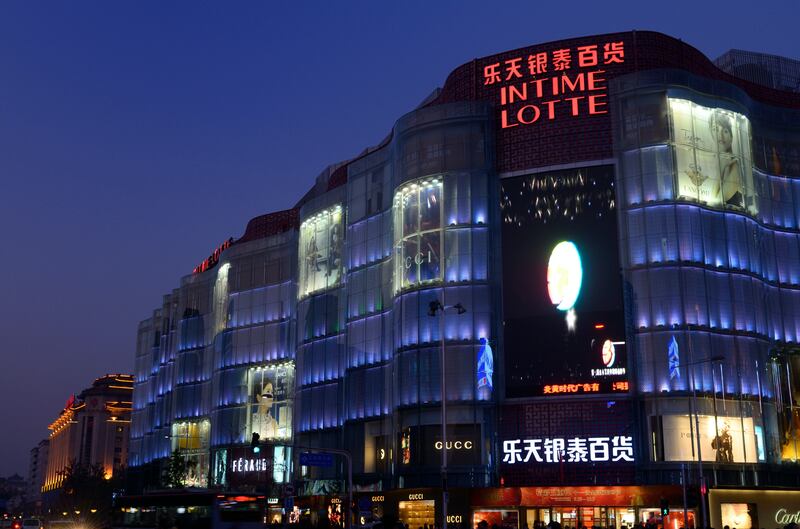
Intime Lotte department store in Beijing | Source: Shutterstock
InTime’s Live-streaming Programme Pays Dividends
As malls and department stores across the country race to incorporate live-streaming as a way of keeping in touch with customers to let them know about new products, or even sell online, the Alibaba-backed Intime Department Store chain is looking ahead of the curve, having launched its live-streaming sales associates programme in April 2019. Over the last month, Intime sales associates have been busy live-streaming from their homes, taking advantage of the greater downtime consumers have while off work to develop relationships and reach out to old leads, for example, to share Spring Festival discounts. (Da Bo Hui)
How Coronavirus Has Changed China’s Retail Industry
Though it's still impossible to predict how the epidemic and its after-effects will impact on retail in the long-term, already older people in China are shopping online in greater numbers, especially for daily necessities, such as fresh food. Lower-tier city consumers have also more voraciously embraced e-commerce and brick-and-mortar retailers are trialling a host of digital solutions to counter a major drop in foot fall. Some of these developments are likely to have an impact long after the threat of coronavirus fades. (China Skinny)
政治,经济与社会
POLITICS, ECONOMY, SOCIETY
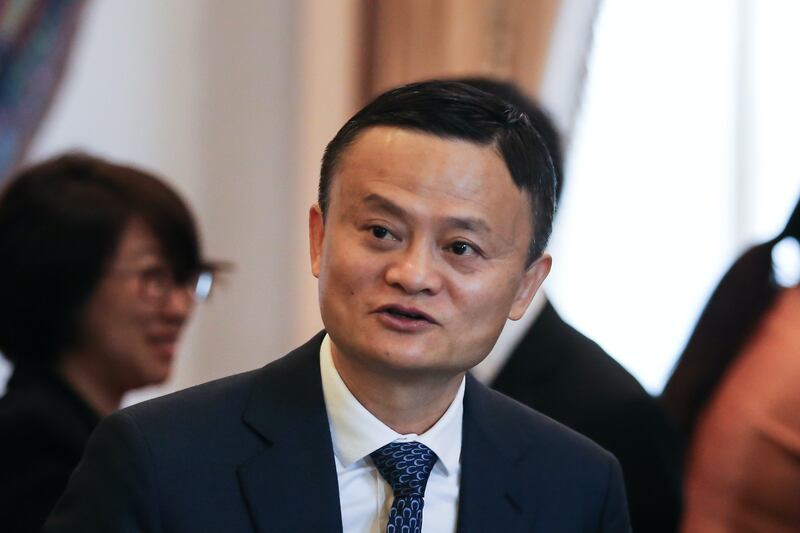
Alibaba Group Founder Jack Ma | Source: Shutterstock
China Has More Billionaires Than US and India Combined
China had 799 billionaires in 2019, more than the US and India put together, according to the annual Hurun Global Rich List, which measured the wealth of some 2,816 billionaires from 71 countries and regions. Alibaba Founder Jack Ma climbed a place to become the world's 21st richest person with a net worth of $45 billion last year, retaining his title as China's wealthiest person, just ahead of Tencent's Pony Ma with a net worth of $44 billion. (Caixin)
China’s Manufacturing Fell Off a Cliff in February
It was no surprise that China's Purchasing Managing Index (PMI) data for February would take a significant hit as factories remained closed after their usual Spring Festival break as part of quarantine requirements across the country to help holt the spread of coronavirus. More worrying is the fact that the contraction was worse than the expected drop of 50 points in January to 45 in February. The actual result, 35.7 for February fell below the 38.8 figure reported in November 2008, at the height of the global financial crisis. (National Bureau of Statistics)
Updated 15:31 GMT on March 5 2020: This article misstated that Xiao Zhan is a spokesperson for Olay and L'Oréal. He is a spokesperson for Olay and Estée Lauder.
China Decoded wants to hear from you. Send tips, suggestions, complaints and compliments to our Shanghai-based Asia Correspondent casey.hall@businessoffashion.com.
With consumers tightening their belts in China, the battle between global fast fashion brands and local high street giants has intensified.
Investors are bracing for a steep slowdown in luxury sales when luxury companies report their first quarter results, reflecting lacklustre Chinese demand.
The French beauty giant’s two latest deals are part of a wider M&A push by global players to capture a larger slice of the China market, targeting buzzy high-end brands that offer products with distinctive Chinese elements.
Post-Covid spend by US tourists in Europe has surged past 2019 levels. Chinese travellers, by contrast, have largely favoured domestic and regional destinations like Hong Kong, Singapore and Japan.